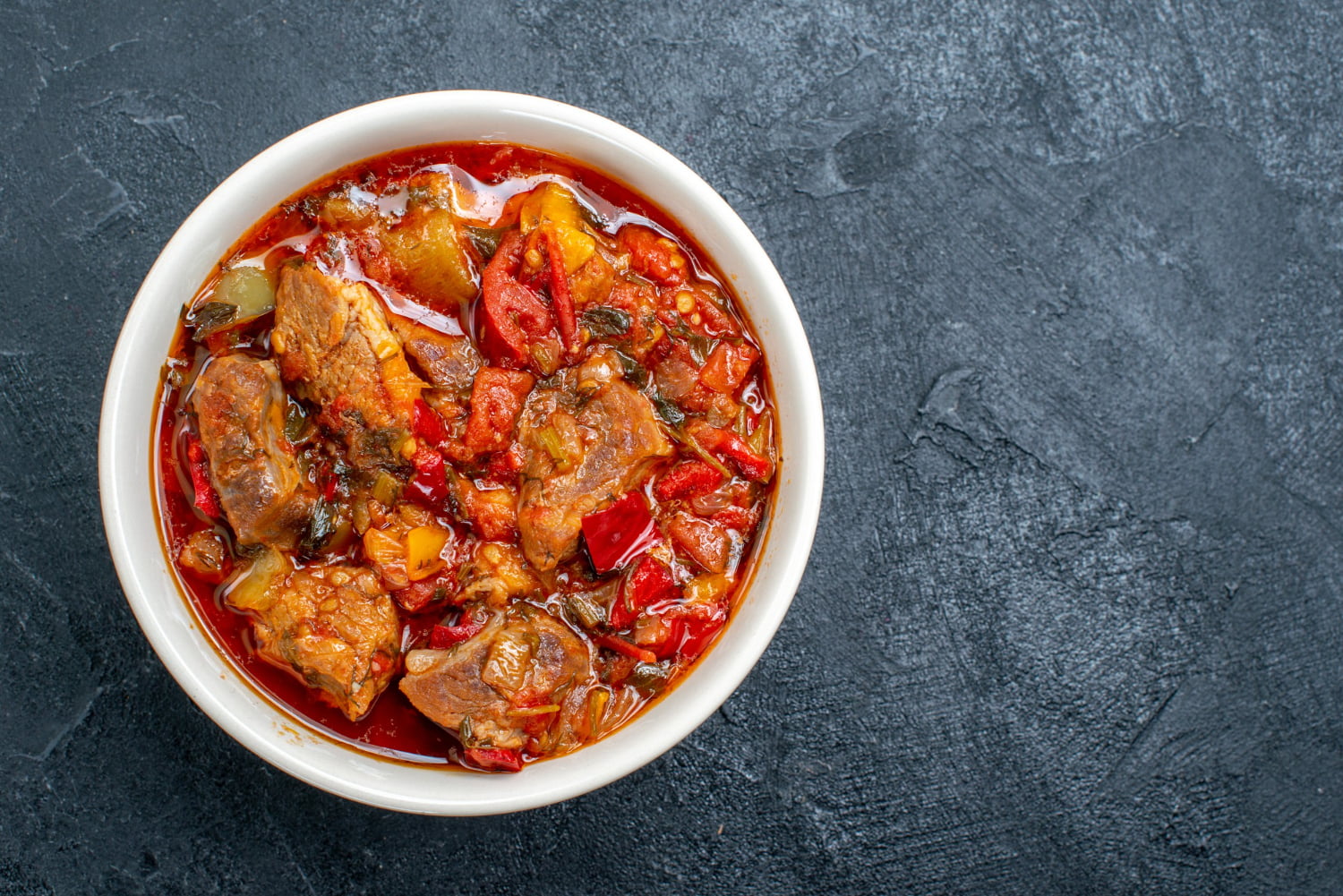Healthy Eating: How to Make Your Favorite Nigerian Dishes Healthier
- Making your favorite Nigerian dishes healthier doesn't have to be complicated.
- With these simple tips, you can enjoy your favorite Nigerian dishes while still maintaining a healthy lifestyle.

If you are a lover of Nigerian cuisine, you know it is full of rich flavours and spices. However, many traditional Nigerian dishes are not the healthiest options. They are often high in fat, salt, and sugar, which can lead to health problems such as obesity, high cholesterol, and high blood pressure. But that doesn’t mean you have to give up your favorite dishes. There are several ways to make your favorite Nigerian dishes healthier without sacrificing the taste. In this post, we will explore some simple swaps and modifications that can make your favorite Nigerian dishes healthier and more nutritious.
Table of Contents
Swap Out Highly Processed Ingredients
Many Nigerian dishes contain highly processed ingredients like white flour and white rice, which are stripped of their nutrients. These refined grains can cause a spike in blood sugar levels and contribute to weight gain. Instead, swap out these refined grains for healthier options like whole wheat flour and brown rice. Whole wheat flour is packed with fibre, vitamins, and minerals, and has a lower glycaemic index than white flour, which means it won’t cause a sudden spike in blood sugar levels. Brown rice is also a healthier option as it is a whole grain that is rich in fibre and minerals.
Another ingredient you can swap out for a healthier option is palm oil. Palm oil is high in saturated fat, which can increase cholesterol levels and increase the risk of heart disease. Instead, use olive oil or coconut oil, which are healthier options as they contain monounsaturated and polyunsaturated fats that are good for your heart.
Finally, swap out processed meats like sausage and bacon for leaner proteins like skinless chicken, turkey, or fish. These choices are lower in fat and calories, which makes them healthier options that can still be used to make delicious Nigerian dishes.
Use Fresh Vegetables Instead of Canned
Many Nigerian dishes use canned vegetables as a shortcut, but these canned vegetables are often high in sodium, which can contribute to high blood pressure. Instead, opt for fresh vegetables. Fresh vegetables are not only more nutritious, but they also have a much better flavour. You can find fresh vegetables at your local grocery store or farmers’ market. If fresh vegetables are not available, frozen vegetables are also a good option as they are often picked and frozen at the peak of freshness, which means they retain their nutrients.
When cooking with fresh vegetables, try to steam or roast them instead of frying them. Frying vegetables can add unnecessary calories and fat to your dish, while steaming or roasting them can help preserve their nutrients and flavour.
You can also experiment with different vegetables in your Nigerian dishes. For example, try adding spinach or kale to your Egusi soup or Okra soup. These dark leafy greens are packed with vitamins and minerals and can help boost the nutritional value of your dish.
Choose Leaner Cuts of Meat and Poultry
Many Nigerian dishes are made with meat, which can be high in saturated fat. However, you can make your dishes healthier by choosing leaner cuts of meat and poultry. For example, instead of using beef, which is high in saturated fat, use skinless chicken or turkey breast. These lean proteins are lower in fat and calories, which makes them a healthier option.
You can also try using tofu or tempeh in place of meat in your Nigerian dishes. Tofu and tempeh are plant-based proteins that are rich in nutrients and low in fat. They can be used in dishes like Jollof rice or stir-fries to add protein and flavour.
Finally, when cooking meat, try to avoid frying it. Frying meat can add unnecessary calories and fat to your dish. Instead, try grilling, baking, or broiling your meat. These cooking methods can help reduce the fat content in your dishes and make them healthier.
Use Healthier Cooking Methods
The way you cook your food can have a big impact on its nutritional value. Some cooking methods can strip away nutrients and add unnecessary calories, while others can preserve nutrients and make your food healthier. Here are some healthy cooking methods you can try:
- Grilling: Grilling is a healthy cooking method that can help reduce the fat content in your dishes. When grilling, use lean cuts of meat and poultry, and avoid adding oil or butter to your food.
- Baking: Baking is another healthy cooking method that can help preserve the nutrients in your food. When baking, use whole wheat flour instead of white flour, and avoid adding sugar to your dishes.
- Steaming: Steaming is a healthy cooking method that can help preserve the nutrients in your food. When steaming, use fresh vegetables and avoid adding salt or butter to your food.
Reduce Oil and Salt Content
Many Nigerian dishes use large amounts of oil and salt, which can be unhealthy. To make your dishes healthier, try reducing the amount of oil and salt you use. Instead of frying your food, try baking or grilling it. When using oil, use a small amount of a healthy oil like olive oil or coconut oil. These oils contain healthy fats that are good for your heart.
When using salt, try to use less or substitute it with other spices and herbs. Herbs and spices can add flavour and depth to your dishes without adding salt. Try using herbs like parsley, cilantro, and basil, or spices like cumin, coriander, and paprika.
Experiment with Herbs and Spices
Herbs and spices are a great way to add flavour to your Nigerian dishes without adding extra calories, fat, or salt. Experiment with different herbs and spices to find the perfect combination for your dish. Here are some herbs and spices commonly used in Nigerian cuisine:
- Cumin: Cumin is a common spice used in Nigerian dishes like Jollof rice and Suya. It has a warm, earthy flavour that pairs well with meat and vegetables.
- Cayenne pepper: Cayenne pepper is a spicy pepper that is often used in Nigerian dishes to add heat and flavour. It is commonly used in dishes like pepper soup and suya.
- Ginger: Ginger is a root that is commonly used in Nigerian dishes to add flavour and depth. It is often used in stews and soups.
Make Your Own Sauces and Seasonings
Many Nigerian dishes use pre-made sauces and seasonings that are high in salt, sugar, and preservatives. To make your dishes healthier, try making your own sauces and seasonings. Homemade sauces and seasonings are not only healthier, but they also taste better. Here are some examples of homemade sauces and seasonings you can try:
- Suya Spice: Suya spice is a blend of spices used in Nigerian dishes like Suya. To make your own suya spice, mix together ground peanuts, paprika, cumin, and cayenne pepper.
- Tomato Sauce: Tomato sauce is a common ingredient in Nigerian dishes like Jollof rice. To make your own tomato sauce, blend together fresh tomatoes, onions, garlic, and ginger.
- Pepper Sauce: Pepper sauce is a spicy sauce that is often served with Nigerian dishes. To make your own pepper sauce, blend together hot peppers, onions, garlic, and vinegar.
Opt for Whole Grain Versions of Staple Foods
Many Nigerian dishes are made with staple foods like rice, bread, and pasta. To make your dishes healthier, try using whole grain versions of these foods. Whole grain foods are rich in fibre, vitamins, and minerals, which makes them healthier options than refined grains. Here are some examples of whole grain staple foods you can try:
- Brown rice: Brown rice is a whole grain rice that is rich in fibre and minerals. It is a healthier option than white rice, which is a refined grain.
- Whole wheat bread: Whole wheat bread is a healthier option than white bread, which is a refined grain. Whole wheat bread is packed with fibre, vitamins, and minerals.
- Whole wheat pasta: Whole wheat pasta is a healthier option than white pasta, which is a refined grain. It is rich in fibre, vitamins, and minerals.
Conclusion
Making your favorite Nigerian dishes healthier doesn’t have to be complicated. By making simple swaps and modifications, you can make your dishes healthier and more nutritious without sacrificing the taste. Try using fresh vegetables instead of canned, choosing leaner cuts of meat and poultry, using healthier cooking methods, reducing oil and salt content, experimenting with herbs and spices, making your own sauces and seasonings, and opting for whole grain versions of staple foods. With these simple tips, you can enjoy your favorite Nigerian dishes while still maintaining a healthy lifestyle.
Thanks for reading! We hope this helps you on your journey to becoming a fitter and healthier version of yourself. Don’t forget to follow @naijafitfam on Instagram for more helpful content.




















